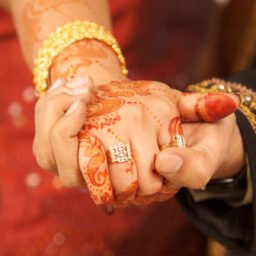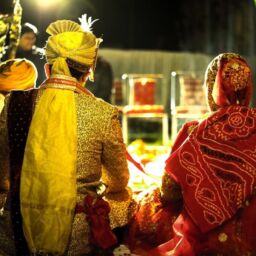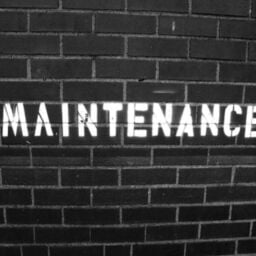Introduction
As a society, we often ignore the rights which an illegitimate child deserves; because being an illegitimate child, has severe socio-legal consequences on a child’s holistic development vis-à-vis rights. Society perceives extra-marital and pre-marital relationships as sin, thus, different personal laws also remains silent on this aspect. However, the stigma attached to illegitimacy tried to be supplanted through enactments like the presumption of legitimacy vide s.112 of the Evidence Act,[1] which raises a strong presumption in favour of bestowing legitimacy on the child as this presumption can be rebutted only through presenting material evidence against the consummation of the marriage between husband and wife.
Hindu and Muslim personal laws have different laws governing the rights of an illegitimate child, which can be categorized in the following manner.
Rights of illegitimate children under Hindu law
Under Hindu Marriage Act,[2] children who are born out of the void or voidable marriage are considered as illegitimate.[3] If the marriage stand in contravention to clause-(i), (iv), and (v) of s.5 under the said Act, that is; if marriage is bigamous/parties to the marriage are under a prohibited degree of relationship/husband and wife are sapindas, then such marriage is considered as void.
Moreover, s.12 of HMA talks about voidable marriages as one that can be declared void if certain conditions are met vide s. 12(1) regarding the solemnisation of marriage. Furthermore, the marriage is invalid if the essential ceremonies under s.7 of the Act have not been performed, and in case the child is born from such marriage, then that child will be considered as illegitimate.
Under Hindu law, the rights of an illegitimate child can be divided into these broad categories;[4]
- Maintenance rights: Under s.20 of the Hindu Adoption and Maintenance Act,[5] both parents are legally obliged to maintain their legitimate and illegitimate child, if they had not converted to some other religion.[6] And, in case of death of either or both the parents, then also, an illegitimate child has right to be maintained from parent’s estate till the male child attains the age of 18-years, and daughter gets married.
But, if an illegitimate child converts himself/herself to another religion, then right of maintenance becomes subject to the provisions of s. 125(1)(b) and (c) of CrPC, as they can still claim maintenance from father if they are suffering from mental/physical abnormality or if the minor child is incompetent to maintain himself/herself.
- Inheritance rights: According to s. 16(3) of HMA, an illegitimate child has no right over the ancestral property but only on parents’ self-acquired property. However, recently it has been held that illegitimate children have the right over parents as well on the ancestral property, and those children who are born from void/voidable marriage, are considered as legitimate by the Court.[7]But, this matter is sub-judice and currently, the position of law has been explained by Bombay High Court through upholding the old stance of limiting the rights of an illegitimate child to parent’s property only.[8] Furthermore, after the Hindu Succession Act,[9] rights of an illegitimate child belonging to a shudra family also get restricted to parent’s property.
- Right over joint family property: Rule of inheritance is complicated in this matter, because in case if the child is born from void/voidable marriage, then that child shall be treated as legitimate vide s.16 of HMA, but such child has coparcenary rights over father’s property only, and can file a partition suit only on father’s property after his death.
And, children not belonging to the above-mentioned category, their rights are governed through the principles of Mitakshra School, which states that the illegitimate child has no right over parent’s property because they are not related through legitimate kinship, thus, the rights conferred upon children born from void/voidable marriage have superior right to that of other illegitimate children but inferior from that of a legitimate child.[10]
- Guardianship rights: Under s. 6(b) of Hindu Minority and Guardianship Act,[11] first “mother” and then “father” is considered as a natural guardian of an illegitimate child. Furthermore, it applies in those case where both the parents of an illegitimate child belongs to Hindu religion,[12]and if only one parent is Hindu, then to get the benefits of s.6(b), an illegitimate child is required to be reared under Hindu tradition. However, if an illegitimate child converts the religion or renounces the world, then rights with respect to being an illegitimate child get automatically revoked.
Legitimate and illegitimate children under Muslim law
In Muslim law, a child can be legitimate only when the marriage between his/her parents has been proved. Otherwise, the child is considered as illegitimate and has maternity only and not paternity, because paternity refers to the formal relationship between the child and his/her father. However, there is a difference in approach amongst different schools under Muslim law as Shia school did not recognize paternity/maternity of the child which is born out of void marriage. But, a child can become legitimate even through acknowledgment (ikrar) from his/her father,[13] and it should be noted that such acknowledgment can be in expressed terms or through necessary implication from the conduct of the parties.
Furthermore, Muslim law bestows a strong presumption of legitimacy on a child, these are;[14]
- In case, a child is born before six months from the date of a valid marriage, then that child is considered as illegitimate, however, through acknowledgment, the father can make that child legitimate under Muslim law.
- And, if the child is born after six months from the date of marriage, then that child is legitimate unless the father disclaims that child by accusing the wife to be a part of an adulterous relationship with someone else.
- Moreover, the child is considered as legitimate if she/he is born before 10-months under Shia law, 2-years under Hanafi law, and 4-months under Maliki/Shafi law after the dissolution of marriage.
Rights of an illegitimate child
- Right of inheritance: Different schools follow different practices concerning the inheritance right of an illegitimate child. However, an illegitimate child cannot claim inheritance over the property of a putative father in any school, but it varies in case of claim over mother’s property. And, in Hanafis, the illegitimate son and his mother have co-existing inheritance right over each other’s property and that son can also claim right of inheritance from the relatives as well with whom that child is related through mother. But under Shia law, the illegitimate child has no right of inheritance on his/her parent’s property as they are treated as the son of “Zina”. Thus, they can claim inheritance over their mother’s property in some cases, but such right do not extend upto property belonging to the putative father.
- Right of maintenance: In Mohammedan law, children from cohabitation only between husband and wife or husband and slave, are considered as legitimate. And, those children who are born outside the purview of these two scenarios are considered as the son of “Zina” and hence they have no right to maintenance. But in Hanafis, they can claim maintenance till the age of 7.
However, the illegitimate child can claim maintenance from his/her father under CrPC vide s. 125(1) (b) and (c). And, since the CrPC is a general law, such laws are applicable when no conflict arises between personal and general laws.[15]
- Right of having a legal guardian: If the child is legitimate, then the father is the natural guardian of that child and the mother has only custodial rights (hizanat) until the minor son becomes 7-years old or daughter hits her age of puberty. And, an illegitimate child under Muslim law is treated as filius nullius (child of nobody); but, even in the case of an illegitimate child, the mother still holds the custodial rights. However, it has been held through judicial adjudication that the mother is a natural guardian of an illegitimate child and it can extend up to a limit that she can even file a writ of habeas corpus if someone is withholding the child from the custody of his/her mother.[16] Thus, an illegitimate child has a limited right to having a natural guardian under Mohamedan law.[17]
Conclusion
It can be observed that the Hindu personal law is comparatively progressive to that of Muslim law because the former provides an extensive right to an illegitimate child through statutory recognition. But in the case of Muslim law too, it is evident that it has certain unique features like the concept of “acknowledgment” or the presumption of legitimacy under different schools after the dissolution of marriage, especially in Hanafis.
However, there is still room left for the recognition of the rights of an illegitimate child under both these personal laws keeping in mind the socio-legal consequences attracted to an illegitimate child. And, it is high time to give an equal right to both legitimate and illegitimate child, so that a child must not suffer due to the acts of their parents especially when it comes to their legal rights.
Author(s) Name: Kumar Aditya (Bennett University, Greater Noida)
References:
[1] The Indian Evidence Act, 1872, s.112.
[2] Hereinafter HMA.
[3] The Hindu Marriage Act, 1955, ss.11, 12.
[4] Kusum and Punam Pradhan, “Family Law Lectures – Family Law-I”, Lexis Nexis, Ch.5, 5th ed.
[5] The Hindu Adoption and Maintenance Act, 1956, s.20.
[6] Ibid. s. 24
[7] Revansidappa v Malikarjun (2011) 11 SCC 1
[8] Digambar Namdeo Munjal v Kashibai Digambar Munjal Second Appeal No.197 of 2016
[9] Hereinafter HSA
[10] Shanta Ram v Smt. Dargubai AIR 1987 Bom 182
[11] The Hindu Minority and Guardianship Act, 1956, s.6(b)
[12] Supra note 3 at 1, s. 2(1) (a) and (b)
[13] Sadiq Hussain v Hashim Ali (1916) ILR 38 ALL 627
[14] Supra note 10 at 3
[15] Nafees Ara v Asif Saadat Ali Khan 1963 CriLJ 394
[16] Gohar Begum v Suggi Alias Nazma Begum 1960 AIR SC 93
[17] Law Commission of India, Consultation Paper on Reform of Family Law, (August, 2018)
















